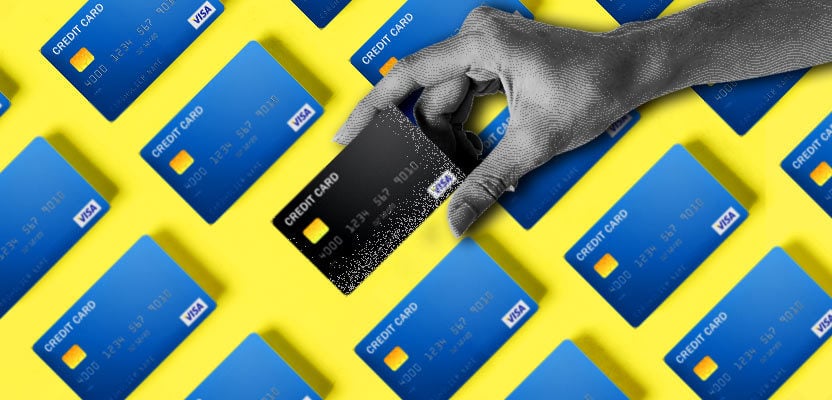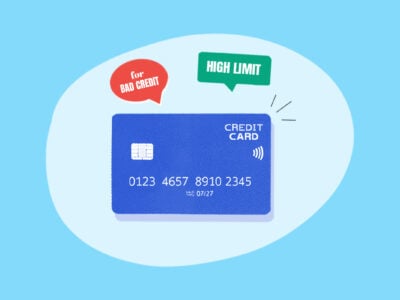These days, it’s easy to accumulate credit cards—especially if you shop at chains that offer store-branded cards, or if you receive lots of offers in the mail for cards that you’ve been prequalified for. If you have more than a few credit accounts, it’s understandable if you’re wondering whether you have too many (or whether there’s such a thing as “too many credit cards” to begin with).
The answer is that, at least as far as your credit score is concerned, there is a point at which you can have too many cards. However, if you’re a fairly typical consumer, you’re probably nowhere near that limit.
Table of Contents
How many credit cards should you have?
Most consumers with good credit scores (620+) have between three and ten credit cards, with the typical good-credit holder having four or more credit cards. However, how many credit cards you should have depends on your financial situation. 1
When it comes to keeping a good credit score, your overall credit habits are also much more important than having the right number of credit cards. In the FICO credit scoring model, for instance, these are by far the most important factors that contribute to your score:
- Payment history: Your past activity on all of your credit accounts (i.e., whether you pay your bills on time or sometimes pay them late) makes up 35% of your score.
- Amounts owed: How much you currently owe on your credit accounts (especially your credit cards) makes up 30% of your score.
Together, these factors make up 65% of your credit score. This means it’s better to only have two cards and pay your bills on time than to five cards and fall behind on payments.
How many credit cards is too many?
There’s no consensus about how many credit cards count as “too many.” However, you should avoid applying for new credit cards if you:
- Have a lot of outstanding debt on your current credit cards
- Have applied for multiple credit cards recently
When you apply for new credit, your prospective credit card issuer decides whether the number of cards you have is acceptable. Lenders are more reluctant to extend new credit if you applied for multiple credit accounts in a short period of time. 2
If you accumulate your accounts over a longer period and keep up your payments, creditors are likely to extend more credit, and you can safely own more credit cards.
How many credit cards does the average American have?
The average American has three credit cards. This number varies based on age, location, and financial situation.
See how your credit card ownership compares to other Americans: 3
Average number of credit cards by age
| Generation | Silent Generation (1928-1945) | Baby Boomers (1946-1964) | Gen X (1965-1980) | Millennials (1981-1996) | Gen Z (1997-2012) |
|---|---|---|---|---|---|
| # of Credit Cards | 2.7 | 3.4 | 3.3 | 2.7 | 1.7 |
| Average VantageScore | 729.9 | 724.2 | 685.2 | 667.4 | 660.5 |
| # of Retail Cards | 2.1 | 2.5 | 2.5 | 2.1 | 1.6 |
| Average Balance on Retail Cards | $1,329 | $1,887 | $2,214 | $1,819 | $1,125 |
Average number of credit cards by state
| States with Highest Average # of Credit Cards | New Jersey | New York | Florida | Nevada | California |
|---|---|---|---|---|---|
| # of Credit Cards | 3.37 | 3.22 | 3.19 | 3.16 | 3.15 |
| States with Lowest Average # of Credit Cards | Mississippi | Iowa | Oklahoma | New Mexico | Indiana |
|---|---|---|---|---|---|
| # of Credit Cards | 2.62 | 2.63 | 2.67 | 2.70 | 2.70 |
Can having too many credit cards hurt your credit score?
Yes, having too many credit cards can hurt your credit score. FICO’s scoring model sometimes cites “too many bank/national revolving accounts” as a reason for reducing your score. 4
This implies there’s a threshold after which you’ll be penalized for opening new credit cards (which are a type of revolving credit account).
FICO hasn’t released any information on how many credit cards you need to have to incur this penalty. Anecdotal reports suggest that this message from FICO is rare, which means that the threshold is probably fairly high and not something that most consumers need to worry about.
What are the benefits of having multiple credit cards?
There are three main benefits of having multiple credit cards:
- More rewards: Some credit cards give you the opportunity to earn rewards, such as cashback, points, or airline miles. The more cards you have, the more perks you’ll be eligible for.
- Other perks: You don’t always need a rewards card to save money. Some credit cards come with other perks, such as an introductory 0% APR period, which you can take advantage of to make large purchases without paying interest.
- More available credit / lower utilization rate: Having more credit cards means having more available credit, which makes it easier to reduce your utilization rate and improve your credit score. However, how much credit you should have will depend on well you can manage that credit. In other words, if more credit makes you overspend and get into debt, opt for less credit.
Why having multiple credit cards is good for your utilization rate
Your credit utilization rate is the proportion of available credit that you’re using. Basically, it’s the amount you owe divided by your total credit limit.
Here’s an example:
- You have 3 credit cards, each with a credit limit of $5,000
- Combined, your total credit limit is $15,000
- You have an outstanding balance of $4,000
- 4,000 divided by 15,000 is .26
- So, your credit utilization rate is 26%
FICO and VantageScore reward a low utilization rate. Experts recommend keeping your utilization below 30%, although VantageScore says that using less than 10% of your available credit is ideal. 5
Having multiple accounts can reduce your utilization rate because it increases your total available credit.
What are the downsides of having multiple credit cards?
There are four main downsides of having multiple credit cards:
- It’s harder to keep track of your accounts: Juggling multiple accounts with different due dates can lead to overdue payments. Keeping track of your bills is important—one payment that’s 30 days overdue can knock 37 points off a “fair” FICO score (and damage your score even more if you have better credit).
- It’s harder to open new credit cards: Some card issuers will reject your application if they think you have too many credit cards. As a result, you might want a credit card with great rewards and a low interest rate and not be able to qualify for it.
- Higher annual fees: Because some credit cards come with annual fees ($80 on average), having multiple credit cards can be a drain on your finances. 6 This problem is enough to circumvent by only getting credit cards without annual fees.
- Opening and closing accounts is bad for your credit score: While opening a new line of credit can lower your utilization rate, which is good, it can also drop your credit score.
Why opening a new credit card is bad for your credit score
Opening new credit cards may lower your credit score due to hard inquiries. A hard inquiry is when a prospective lender checks your credit before issuing you a new account. Hard inquiries take around five points off your score once they’re added to your credit report. 7 The inquiry will remain on your report for two years and affect your score for up to one year. 6
Opening a new card also reduces the average age of your credit accounts, which will lower your score. However, the length of your credit history only affects roughly 10% of your FICO score and VantageScore, so there’s a limit to how much opening a credit card will hurt your credit.
Why closing a credit card is bad for your credit score
Think twice before closing credit cards, as closing accounts can hurt your credit score. Canceling a credit card with a high credit limit and a low balance can cause your credit utilization to shoot up, which will result in an immediate drop in your credit score.
Unless your annual fees are high, you probably shouldn’t cancel a credit card, even if you don’t use them regularly. Consider putting small recurring payments (like your Netflix bill) on them so that they stay active and don’t get canceled by the issuer. If you do need to close an account, make sure you cancel your credit card correctly to avoid financial ramifications.






